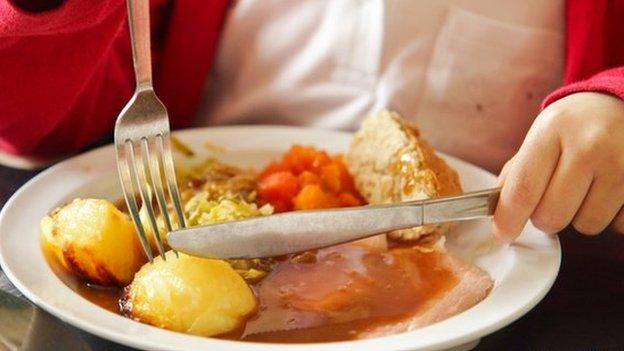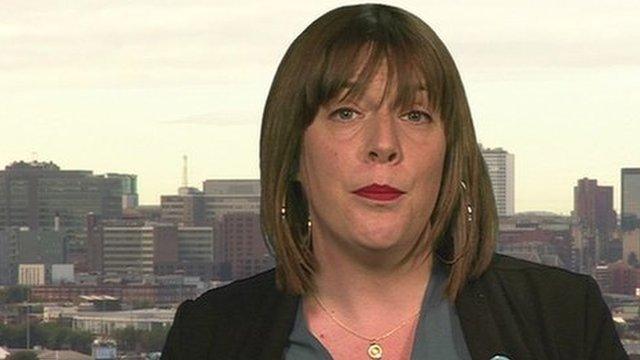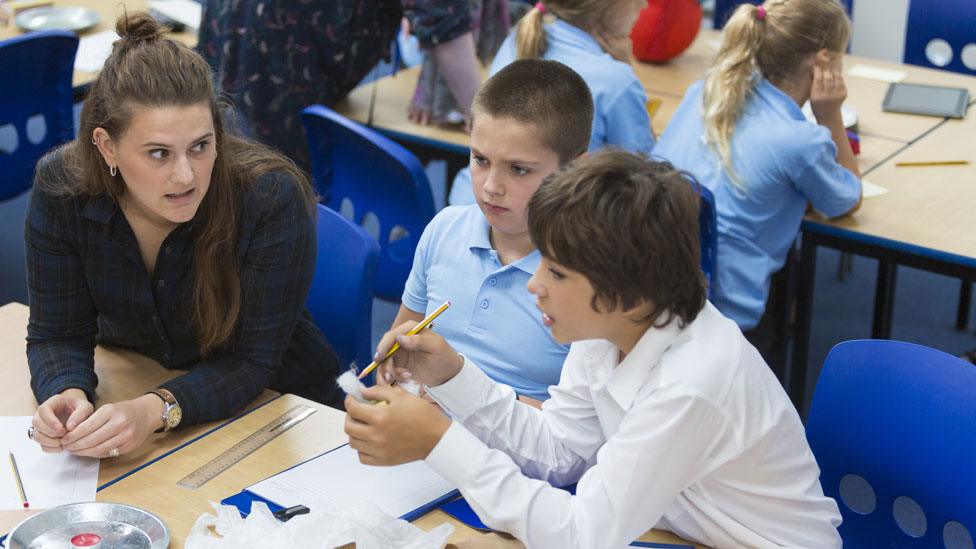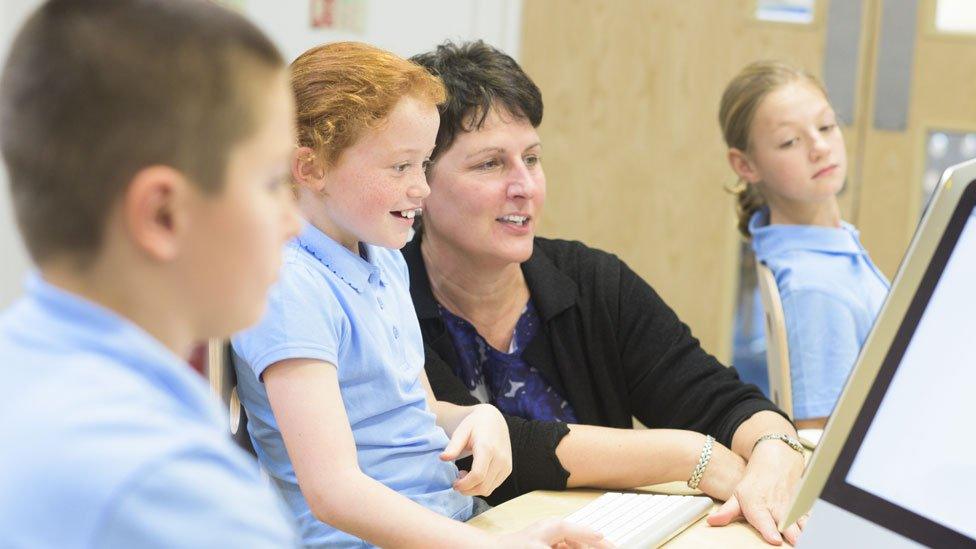Government could be sent back to school in funding row
- Published
Back to the classroom

Some Conservatives believe the government's controversial plans for funding schools was an even bigger issue at street level than the NHS
Even though they won nearly 60 more seats than Labour, Tory MPs are behaving as if they had lost the general election.
I'm told the buzz doing the rounds between them in Westminster's many nooks and corners is all about their "disastrous", "appalling" election campaign and the painful messages they had taken back from the doorsteps of their constituencies.
Some believe the government's controversial plans for funding schools was an even bigger issue at street level than the NHS.
Ministers insist the extra £4bn to be spent on education over this parliament represents the biggest ever commitment to our schools.
"So it should," say Labour, "pupil numbers are also higher than ever".
Labour say the money promised by ministers falls well short of what the schools actually require.
Shortly before the election, the National Audit Office calculated it represented an 8% cut per pupil in real terms over the expected lifetime of the last parliament, with urban areas including Coventry and Birmingham faring the worst.
All of which sets up the intriguing possibility that the lifting, or partial lifting, of the cap on public sector pay may not be the only backtrack by Theresa May's minority administration come the autumn.
Painful lessons

The idea behind the national funding formula for schools is to end what the government call the "outdated and opaque" system of block grants to local authorities
School funding had been the subject of a threatened Conservative backbench revolt even before their party's electoral setback.
Up to a dozen of them had apparently signalled their readiness to defy their whips.
The Cotswold MP Geoffrey Clifton-Brown, Stratford-on-Avon's Nadhim Zahawi and Lichfield's Michael Fabricant were among those who warned ministers back in March that the controversial proposals "would not be carried in their present form".
The idea behind the national funding formula for schools is to end what the government call the "outdated and opaque" system of block grants to local authorities.
They say "the present postcode lottery" should be replaced by a system of grants tailored to the needs of individual schools.
Conveniently buried

What will happen to the Conservatives' pledge to scrap free school lunches?
In the event, a manifesto pledge that no school would lose out under the new scheme averted the threatened split.
But if the government fail to make good on that commitment, how much more rebellious would those backbenchers be, now that the party has felt the full force of this issue during the campaign?
The promise that no school would be worse off was due to have been funded by the scrapping of free school lunches.
But that is itself on the lengthening list of manifesto points now apparently being conveniently buried.
Tories in traditionally low-funded areas are reportedly lining up to warn ministers that they are quite prepared to pick this up where they left it off before the election.
Sunday Politics Midlands this weekend will be reporting from Shropshire, one of those shire counties where educationalists have long complained of a raw deal compared with their urban counterparts.
And joining me in the studio will be two local MPs on opposite sides of the argument.
Town v country

Labour MP for Birmingham Yardley Jess Phillips is one of the fiercest critics of the government's formula
The Labour MP for Birmingham Yardley Jess Phillips is one of the fiercest critics of the government's formula, which the Educational Policy Institute says would cost an average secondary school almost £300,00 a year in real terms.
But the Conservative MP for Mid Worcestershire, Nigel Huddleston, told the Commons last week "no school in the country would lose in cash terms, but any increase in cash terms would be focused on the currently most underfunded areas".
So it's government versus opposition and town versus country this week.
I hope you too can join us for Sunday Politics Midlands in its usual 11.00 slot on BBC One this Sunday morning, 9 July 2017.
- Published3 July 2017

- Published22 March 2017

- Published22 March 2017

- Published21 March 2017
